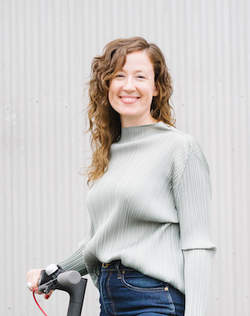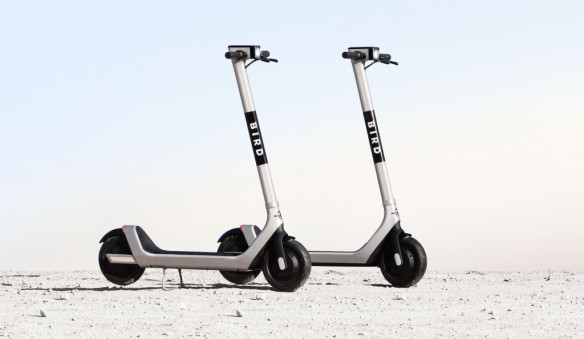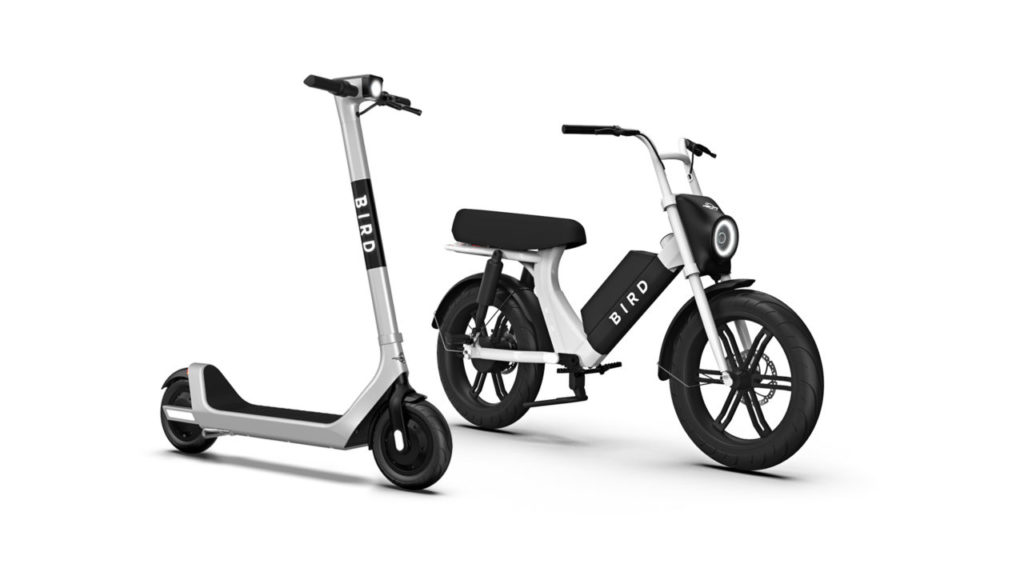Bird
Flies Sustainably with Sturdy Scooters
Bird, the two-year-old, Santa-Monica-based scooter-sharing company, has been growing and developing its trademark electric scooters since it was founded in September 2017. One question about scooters, though, is how sustainable they are. I spoke with Bird’s head of sustainability, Melinda Hanson, at last month’s VERGE 19 in Oakland to find out.

Hanson has two facets to her role: One is promoting the carbon
mitigation potential of electric vehicles while helping cities meet their clean
energy transportation goals. The other is working to make sure Bird itself is a
more sustainable company.
Hanson is focused on developing climate policy that gets people
into EVs, including the small scooters that are Bird’s mainstay. She’s
concerned emissions are still going up despite the rise of EVs and scooters.
As anyone who lives in a city can attest, the scooter sharing
business is booming.
“The main growth in EVs in 2018 was in scooters,” said Hanson.
She told me that Bird’s goal is to get people out of their cars
for short trips, especially in crowded cities.
“The data show that many car trips are less than three miles,”
said Hanson. “They should be riding scooters.”
I asked if people were really replacing car trips with scooters
and Hanson said that one-third to one-half of e-scooter trips were replacing
personal car trips—and much of the rest was in place of using ridesharing
services, such as Uber and Lyft—which are not environmentally positive if
they’re powered by internal combustion engines—and contribute to traffic
congestion.
Serious Scooters
Bird takes its scooters seriously. They have developed and
refined them over the last two years to be more robust, so they last longer.

“Our first scooters were consumer models, not rugged enough for
many trips a day by multiple people,” said Hanson. Bird has built its own
custom models now, which they test for ruggedness. They have learned a lot from
the last two years.
“We used to have screws come loose, and shock absorbers wore
out,” Hanson said. “We have increased frame density and put on better
kickstands,” she said.
The Bird 2 model—the newest one—is much improved. The company
wants riding a Bird to be a great experience, so customers will come back and
ride them regularly.
Bird has doubled the battery capacity of the latest scooters.
This means that they can be used by more customers before needing to come in to
be recharged. To facilitate local charging, Bird has a distributed charging
program where gig workers can pick up the scooters and charge them at home and
put them back on the street. These folks are called “chargers.”
“We want to reduce friction,” Hanson said. That means making not
only the riding experience fun and easy, but also signup and payment.
Expanding the Portfolio
Bird has started working with Scoot, a company it acquired in
June, to bring out other types of two-wheel transportation, such as mopeds.
“We want to provide a bunch of vehicles for different trip
modes,” said Hanson. But the starter vehicle is still likely to be the little
scooter, which is easy to ride and easy to park.

Safety is a concern, and Bird has worked with cities to try to
create bike lanes. They have offered to send riders free helmets (the customer
pays only for shipping).
Hanson is looking for a systems impact. She thinks there’s room
to start converting parking spaces to scooter parking at some point, when there
are enough of them out there.
“When scooters become a major aspect of urban mobility the
streets will start changing the way they look,” said Hanson.
Why will Bird succeed where others falter? Hanson thinks their
emphasis on a great customer experience will lead to winning in the
marketplace. And, their major investments in R&D to create better quality
scooters will help too.
Summing up, Bird’s goal is to improve the overall efficiency of
vehicles, using clean energy; they want to get people out of their cars for all
those short trips. And they want to do it sustainably.
Source: Electric, Hybrid, Clean Diesel & High-MPG Vehicles

